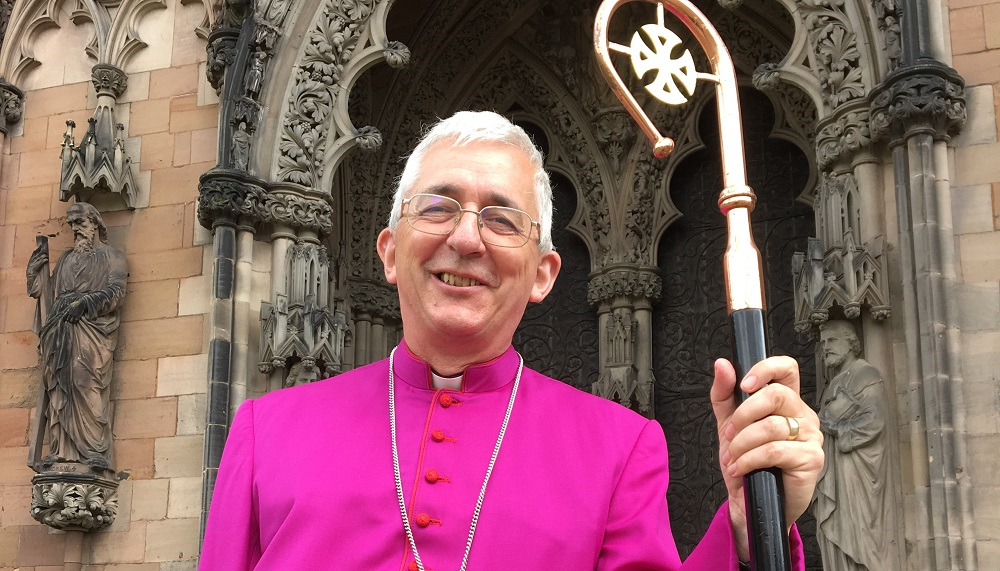
From the first fruits of the English nation who turned to Christ, you called your servant Chad to be an evangelist and bishop of his own people: give us grace so to follow his peaceable nature, humble spirit and prayerful life, that we may truly commend to others the faith which we ourselves profess …
So runs the prayer appointed for St Chads Day, 2 March, and it sums up so much about the first Bishop of Lichfield which I hope we can emulate in our own time. He was a lover of peace, as we need to be in a world and sometimes a church which is divided and contested. He was a person of great humility, and that unfashionable virtue is so welcome in an age obsessed with celebrity image. His strength lay in his commitment to a life of prayer it is said that in the last week of his life his companions were amazed to find that the angels were singing alongside Chad in his cell and unless all that we do is rooted and grounded in prayer it will get nowhere. And because of all these things he was able to act as an evangelist, one who commended to all whom he met the way of Jesus Christ, who drew many to a living faith in God. Chads legacy is threaded through the history and the geography of our diocese, but all its power derived from the simple-hearted commitment with which he himself followed his Lord, and the friendly openness with which he invited others to join him. It is with this in mind that I want our new diocesan motto to be: Come follow Christ in the footsteps of St Chad. From St Chads Day until 20thMay, when we launch in Lichfield this new direction of our travel together, it would be wonderful if you could use this collect every day to pray for grace for us all to be renewed in discipleship, evangelism and vocation as Chad was.
Yet, strangely, there is one phrase which rings oddly for me in this prayer: to be a bishop of his own people. The fact is, that Chad was a Northumbrian, educated in the great island monastery of Lindisfarne. But the people to whom he came as bishop in Lichfield in 669 were Mercians, just as his brother Cedd was an apostle to the people of Essex. That might seem like a minor point, but remember: Northumbria, Chads native land, and Mercia, his adopted home, had for decades been engaged in a bitter struggle for supremacy. In 642, the fierce pagan king Penda of Mercia had defeated and killed Northumbrias Oswald and mutilated his body, in a battle fought probably near Oswestry in our diocese; Penda himself was in turn killed by a new Northumbrian king in 655; then in 658, only ten years before Chads arrival, a Mercian revolt against Northumbrian domination re-established the independence of the Midlands from the North. The point of all this is not to give a lesson in ancient history, but to underline the fact that in a very real sense Chad was coming not to his own people, but to enemy territory where he could have been suspected, possibly resented, even hated. It is a testimony to his courage and to his faith that he crossed the barriers of enmity and otherness and won the pagan Mercians to the true faith; and that is a reminder to us of our vocation, as those who follow Christ in Chads footsteps, to build bridges of trust, kindness and service across all the barriers which divide our own society and world.
+Michael Ipgrave